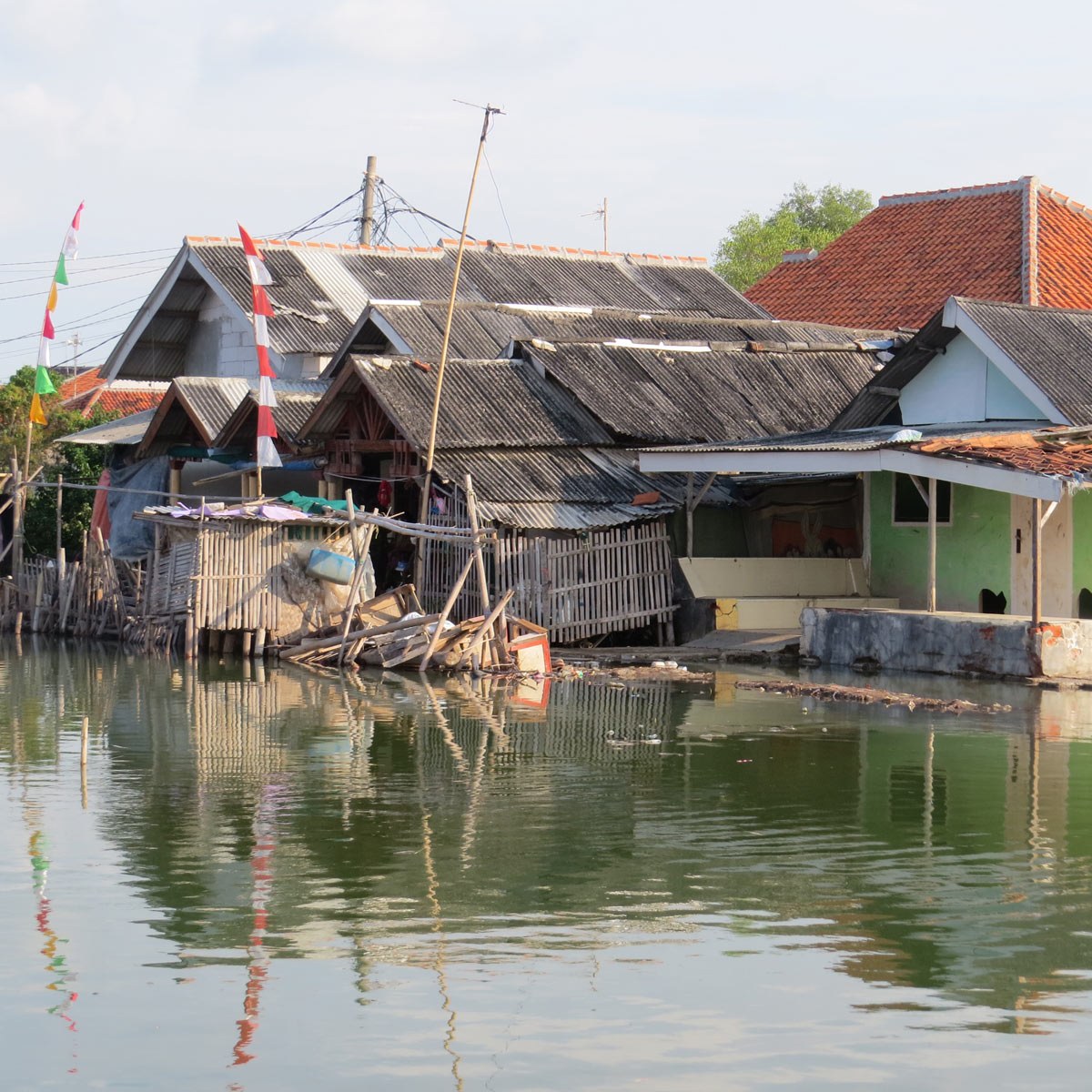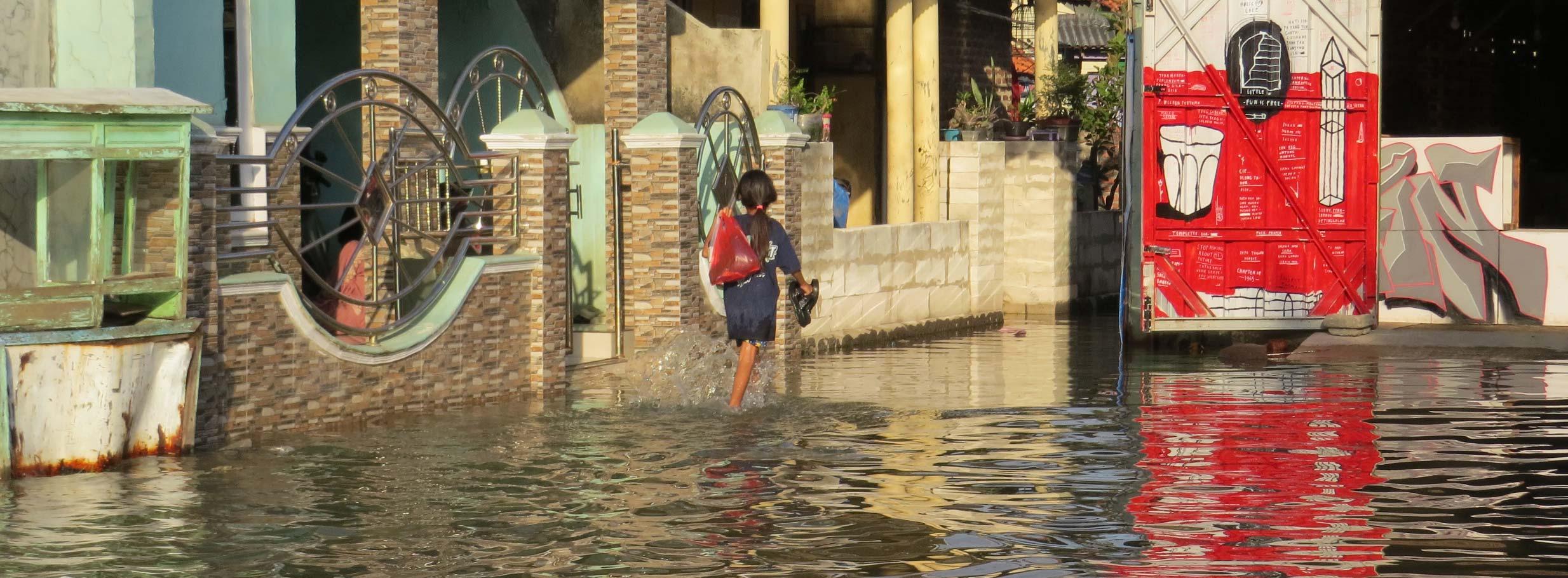Indonésie
Area: Kandanghaur District in Indramayu Regency, coastal West Java, Indonesia
Problem
The Kandanghaur District in Indramayu Regency, a key rice-producing area in coastal West Java, is highly vulnerable to climate impacts such as sea-level rise, flooding, seawater intrusion, and water scarcity. Agricultural productivity is threatened by increasingly unpredictable weather patterns, undermining national food security. The rural communities, heavily reliant on irrigated farming and local ecological systems, lack adequate tools, data, and strategies to adapt to these complex climate risks.

General objective
The Indonesian Living Lab will co-design a climate-resilient blueprint for Kandanghaur, integrating macro and micro-scale strategies that enhance water and energy management, ecological conservation, and architectural resilience. Drawing on local knowledge and traditions, the Lab seeks to strengthen adaptation capacity among farming communities through participatory mapping, planning, and demonstration of regenerative design approaches. The aim is to secure both livelihoods and ecological continuity in one of Indonesia’s most climate-sensitive regions.
Team info
The Indonesian case study will be led by the UK, NTNU, and Indonesian research team members.
Professors
Engineering and Materials
- Chris Blenkinsopp
- Tristan Kershaw
- Jayanta Mondol
- Freja Nygaard Rasmussen
- Nurrohman Wijaya
Social Sciences
- Adiwan Fahlan Aritenang
- Christina Demski
Architecture and Regenerative Design
- Mochamad Donny Koerniawan
- Aoife Houlihan Wiberg
- Daniel Satola
Local collaborators - Community
Farmer and instructor
Leader in the Indramayu Farmers and Fishermen Society (KTNA)
Representative of the local government and member of the executive team of the Agricultural Agency in the Indramayu Regency.

